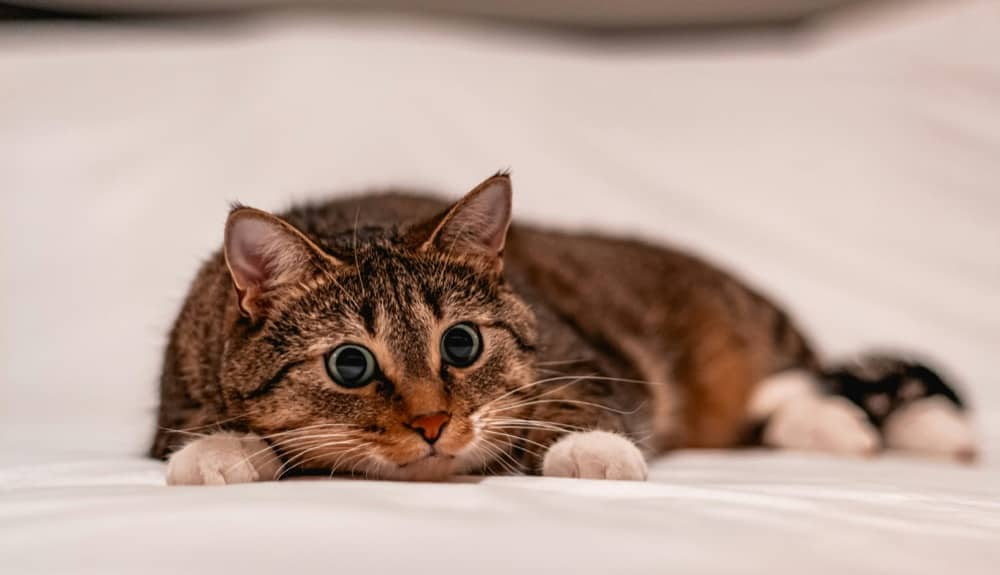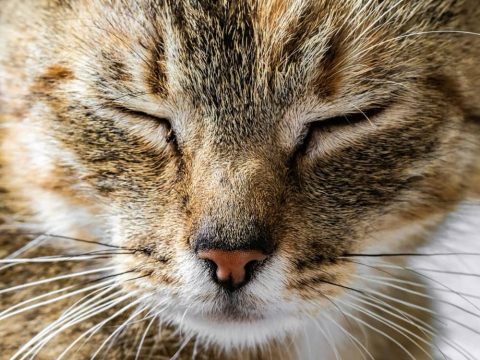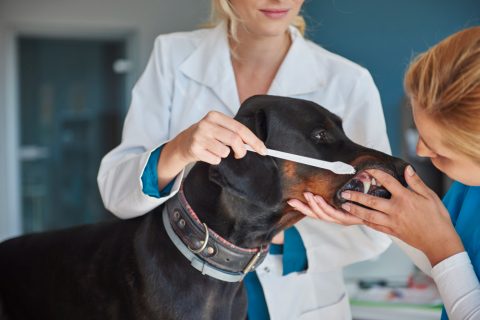If you’ve ever heard your cat make a wheezing or whistling sound while breathing, it can be both confusing and frightening. Cats don’t usually wheeze, and when they do, it’s almost always a sign that something is off. While not all causes are life-threatening, some require prompt medical attention. Understanding what might be behind your cat’s wheezing helps you decide whether it’s a mild concern or an urgent situation that needs an emergency vet visit.
Contents
Mild Causes of Cat Wheezing
When a cat wheezes, the reason can range from something as simple as a temporary irritation to a serious medical problem. Let’s start with some of the mild causes — situations that usually resolve on their own or can be monitored at home.
Hairballs
One of the most frequent and least worrying reasons your cat might wheeze is because of a hairball. As cats groom themselves, they swallow loose fur, which can clump together in their stomach. When trying to cough it up, your cat may let out wheezing or hacking sounds that resemble a short coughing fit.
Once the hairball is expelled, your cat should quickly return to normal breathing. If she resumes normal eating, grooming, and play afterward, you generally don’t need to rush to the vet. However, persistent wheezing or repeated attempts to cough without producing a hairball could point to something else and may need medical evaluation.
Allergies
Just like people, cats can develop allergies to pollen, dust, smoke, cleaning sprays, or certain fabrics. If your cat wheezes after you’ve vacuumed or opened a window during high pollen season, allergies may be the cause.
If your cat already has a known allergy, mild wheezing episodes in the presence of allergens are usually not an emergency. You can try reducing exposure — use air purifiers, switch to unscented litter, or avoid smoking indoors.
But if you’re noticing these symptoms for the first time, or your cat is sneezing, scratching, or licking excessively, schedule a regular vet visit. A veterinarian can confirm allergies and may prescribe antihistamines or steroid treatments if needed.
Moderate Causes of Cat Wheezing
When wheezing becomes more frequent or is paired with other symptoms like coughing, runny nose, or lethargy, your cat may have a moderate health issue that needs prompt veterinary attention, though not necessarily emergency care.
Respiratory Infections
Upper respiratory infections are among the most common moderate causes of wheezing in cats. They can be caused by viruses such as feline herpesvirus or calicivirus, or by bacteria that inflame the airways. Cats in multi-pet households or shelters are particularly vulnerable.
Watch for symptoms such as:
– Sneezing or nasal discharge
– Watery or crusty eyes
– Coughing
– Fever
– Reduced appetite or low energy
If you see these signs, take your cat to your regular veterinarian. Most respiratory infections are treatable with antibiotics, antiviral medications, or supportive care. Keep your cat well hydrated and comfortable in a warm, humid environment — a humidifier can make breathing easier.
Asthma
Feline asthma is surprisingly common and often underdiagnosed. Cats with asthma have inflamed airways that narrow when exposed to triggers such as dust, pollen, or stress. A wheezing or whistling sound during exhalation, combined with labored breathing, is a telltale sign.
If your cat already has an asthma diagnosis, mild flare-ups can usually be managed at home using prescribed inhalers or medications. However, if you notice rapid breathing, open-mouth panting, or if your cat seems to struggle for breath, this can quickly become an emergency. A vet can prescribe long-term treatments like corticosteroids or bronchodilators to reduce airway inflammation and prevent future attacks.

Severe Causes of Cat Wheezing
Some causes of wheezing are serious and require immediate emergency care. These situations can escalate quickly, so it’s crucial to act fast if you suspect one of them.
Heartworms
While heartworms are often associated with dogs, they pose a severe risk to cats too. Even a small number of worms can damage a cat’s lungs and heart. Cats with heartworm disease may wheeze, cough, vomit, or suddenly collapse.
Unfortunately, there is no safe cure for heartworm infection in cats. Prevention through regular medication is the best approach. If your cat shows any sudden or intense wheezing, especially combined with weakness or lethargy, go straight to an emergency vet. Early intervention can save her life.
Airway Blockage
If your cat has inhaled or swallowed a small object — such as a piece of string, toy, or food particle — it may block her airway. This is one of the most dangerous causes of wheezing and can quickly become fatal if the obstruction isn’t cleared.
Signs of airway blockage include:
– Gasping or choking sounds
– Pawing at the mouth
– Difficulty breathing
– Blue-tinged gums
Never attempt to remove the object with your fingers unless you can clearly see it and it’s within easy reach, as you may push it deeper. Instead, keep your cat calm and head to the emergency vet right away.
Cancer
Certain types of cancer, especially those affecting the lungs, nasal passages, or throat, can cause wheezing. Tumors can narrow or block the airways, making it difficult for your cat to breathe comfortably. Other symptoms may include weight loss, decreased appetite, or persistent coughing.
If your cat is already undergoing cancer treatment, occasional wheezing might be part of her condition. However, if the symptom worsens or appears suddenly, schedule an urgent vet visit to assess whether the tumor is progressing or if new treatment is needed.
Heart Disease
Cats with heart disease can develop fluid buildup in their lungs, known as pulmonary edema, which leads to wheezing or shortness of breath. You may also notice your cat becoming more tired, reluctant to move, or breathing heavily even at rest.
If your cat has been diagnosed with a heart condition, monitor her breathing rate closely. A sudden increase in breathing effort or a change in energy level should be treated as an emergency. Cats without a prior diagnosis who show these symptoms should see a vet promptly for heart imaging and evaluation.
When to Seek Emergency Care
Knowing when to call your vet and when to go straight to the emergency clinic can make all the difference.
Take your cat to an emergency veterinarian immediately if you notice any of these signs:
– Labored or open-mouth breathing
– Blue or pale gums
– Collapsing or extreme weakness
– Wheezing that suddenly appears or worsens rapidly
– Inability to stand or move without panting
If your cat is alert, eating, and breathing normally most of the time, you can usually schedule a regular vet appointment to find the cause of milder wheezing.
However, if you’re ever unsure, it’s safest to choose the emergency option — a quick check could prevent a serious outcome.
How to Support a Wheezing Cat at Home
While waiting for your vet appointment or after a diagnosis, there are a few simple steps you can take to help your cat breathe more comfortably:
– Keep the air clean: Avoid smoking, aerosols, or scented candles indoors.
– Use a humidifier: Moist air eases breathing for cats with mild respiratory irritation.
– Limit stress: Cats are sensitive to stress, which can worsen asthma or respiratory symptoms.
– Maintain a healthy weight: Extra pounds can make breathing harder, particularly for cats with heart or lung issues.
– Regular checkups: Preventive visits help detect problems early, from allergies to heartworm prevention.
For more detailed guidance on feline respiratory health, you can explore veterinary resources like the Cornell University College of Veterinary Medicine’s Feline Health Center.
Wheezing in cats can sound alarming, but by understanding the range of possible causes — from harmless hairballs to life-threatening conditions — you can act with confidence. If your instincts tell you something is wrong, trust them. Getting professional help early ensures your cat has the best chance of breathing easy again and staying healthy for years to come.








